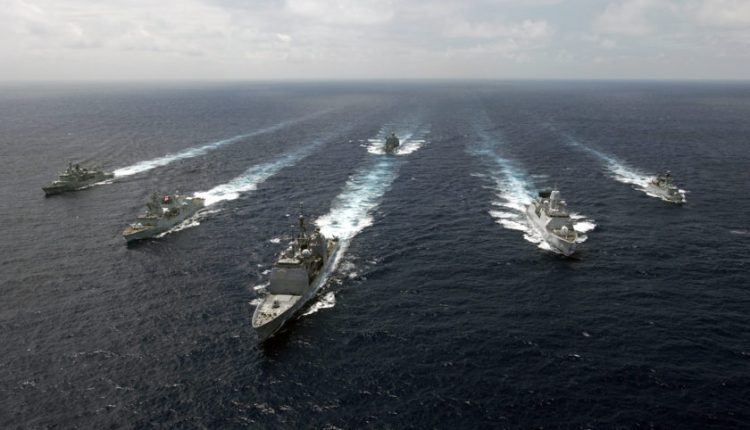US General Ben Hodges: The most profitable conflict between Russia and NATO will be in the Black Sea

Europe should become more interested in the security of Georgia and Ukraine, countries bordering the Black Sea, says US General Ben Hodges, who from 2014 to 2017 was commander of the US Ground Forces in Europe (USAREUR), stressing that the future summit NATO in London should pay more attention to the issue of security in the Black Sea region, as the North Atlantic Alliance does not have an advanced presence adapted to this area.
In this context, he emphasized the importance of the Black Sea region in protecting NATO’s eastern and southern flanks. “There is a need a discussion within the Alliance, which will lead to the formation of a clear idea that the Black Sea region is as important to European security as the Baltic Sea,” said Ben Hodges.
“I think the Black Sea region will most likely be the future theater of conflict. In any case, this is a space where we (NATO) are in a rivalry with Russia. Ukraine has an essential role in the Black Sea area, in fact, for this reason Russia annexed Crimea because from there (from the peninsula) it can reach 97% of the Black Sea coast with various types of weapons”. explained Ben Hodges in an interview with the quoted news agency earlier this week.
According to him, “the Russians can disrupt navigation, create problems for Romania in the perimeter of its exclusive economic zones, where there are energy resources, they can block access to Odessa”, a port city in southern Ukraine.
At the same time, he evoked the challenges related to the bridge across the Kerci Strait, which connects the Crimean peninsula with mainland Russia, as well as the situation of Georgian separatist regions Abkhazia and South Ossetia, whose independence was recognized by Russia following the five-day conflict with Georgia in August 2008.
“We need a DIME (Diplomatic, Information, Military, Economic) formula – a combination of diplomatic, informational, military and economic components for this area. The alliance must develop a multidimensional approach in the Black Sea region to protect its allies, friends and to ensure freedom of navigation, ”stresses the US general in reserve, currently a military expert.
Regarding the military component, Ben Hodges considers that there is a need for more military applications in the region and to improve the exchange of operational data between Ukraine, Romania and Georgia.
“Together, the three countries will have a much better picture of what is happening in the Black Sea, and this can be done even outside the Alliance. NATO has to significantly increase its naval presence in the Black Sea, ”says the US general, according to the Montreux Convention (which stipulates that the aggregate tonnage of warships of non-Black countries entering the Black Sea may not exceed 30,000 tonnes for a period of maximum 21 days) would not be a problem, as NATO did not approach the respective threshold regarding the number of days of stay in the Black Sea waters.
On the economic side, he explained why Western Europe didn’t take the Black Sea region seriously.
“Because he doesn’t see the economic potential here, big stakes. Yes, there is some kind of trade, but trade with the Balkans, with Georgia is not that important. The region needs development, it is important to develop its economic potential for Western countries to become “shareholders” of regional security. As a result, Europe will become more interested in the security of Georgia and Ukraine”, Hodges concluded.
At the same time, the general in the US reserve believes that the West should improve its relations with Turkey, “to find a common language with it”. “We need Turkey to discourage not only Russia in the Black Sea, but also Iran,” he said, adding that Turkey is the angle that unites NATO’s eastern flank with its southern flank.
In the same interview, he also referred to security challenges for the US. In his view, Russia will be an opponent of the United States for at least 20 years, while China will be at least 120 years.

